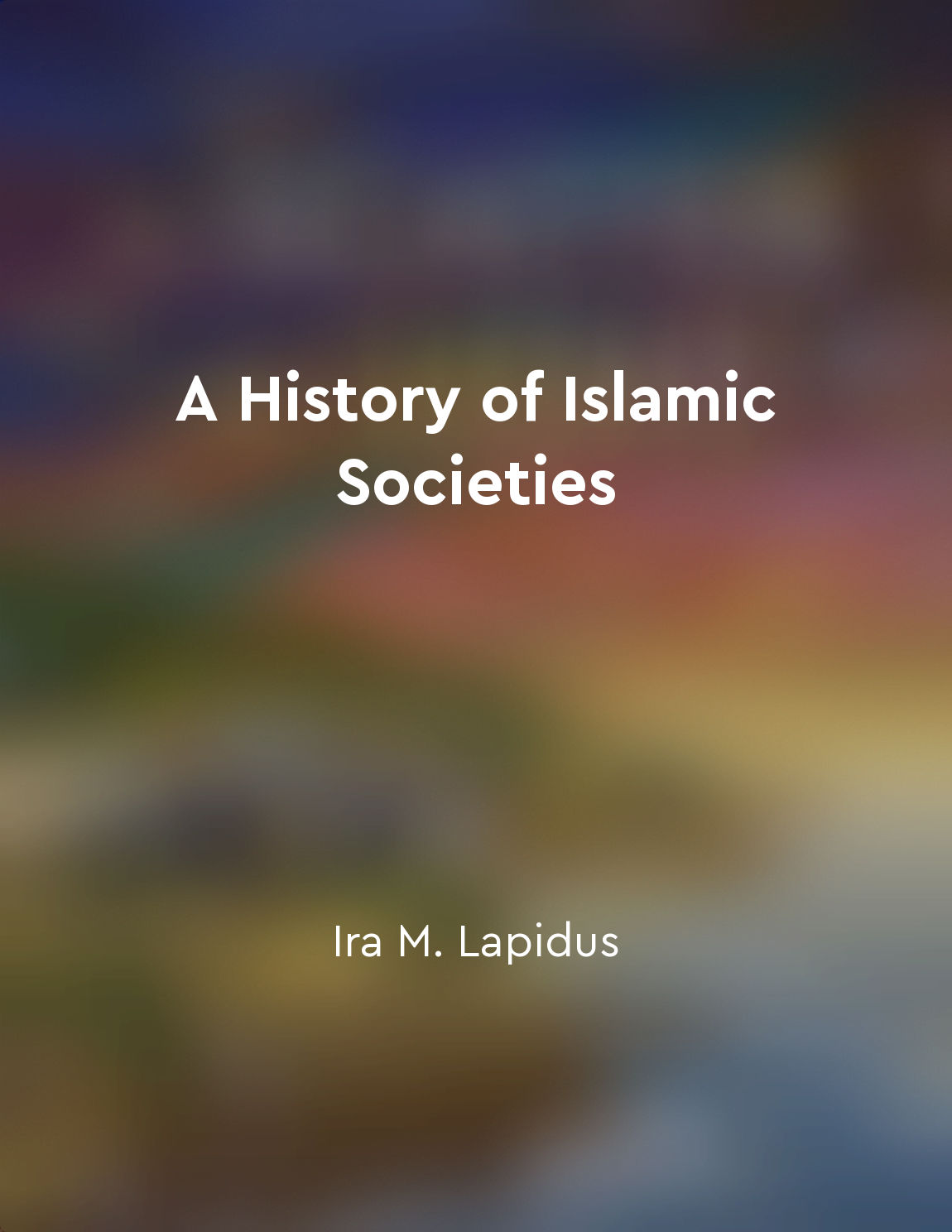The rise of nationalism influenced Islamic societies in the modern era from "summary" of A History of Islamic Societies by Ira M. Lapidus
Nationalism emerged as a powerful force in the modern era, impacting Islamic societies in various ways. The rise of nationalism challenged traditional forms of political organization and identity in Islamic societies, leading to both internal conflicts and resistance to Western imperialism. Nationalism sought to create unified, sovereign nation-states based on shared language, culture, and history, often disregarding the diverse ethnic and religious makeup of Islamic societies. In the context of Islamic societies, nationalism often conflicted with the concept of pan-Islamism, which emphasized the unity of all Muslims worldwide. Pan-Islamism posed a challenge to nationalist movements seeking to create exclusive nation-states, as it called for solidarity among Muslims beyond national boundaries. This tension between nationalism and pan-Islamism led to complex interactions within Islamic societies, as different groups negotiated their identities and political allegiance...Similar Posts
The war led to unprecedented levels of destruction
The war was indeed a catastrophic event that brought about levels of destruction never before seen in human history. The scale ...

Islamic societies faced challenges from European colonial powers
Islamic societies encountered formidable obstacles from European colonial powers that sought to exert their dominance over vast...
The epics of Mahabharata and Ramayana are foundational texts in Indian culture
The epics of Mahabharata and Ramayana are foundational texts in Indian culture. They have shaped the religious, social, and cul...
Buddhist and Jain teachings influenced Indian culture
The teachings of Buddhism and Jainism left a lasting impact on the culture of ancient India, shaping the beliefs and practices ...

Nuclear weapons pose global security threats
Nuclear weapons have the potential to bring about catastrophic consequences on a global scale. The destructive power of these w...
